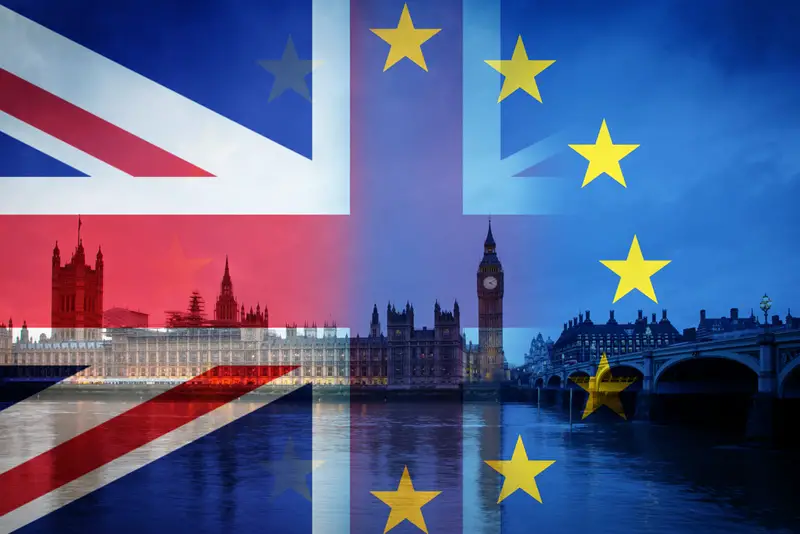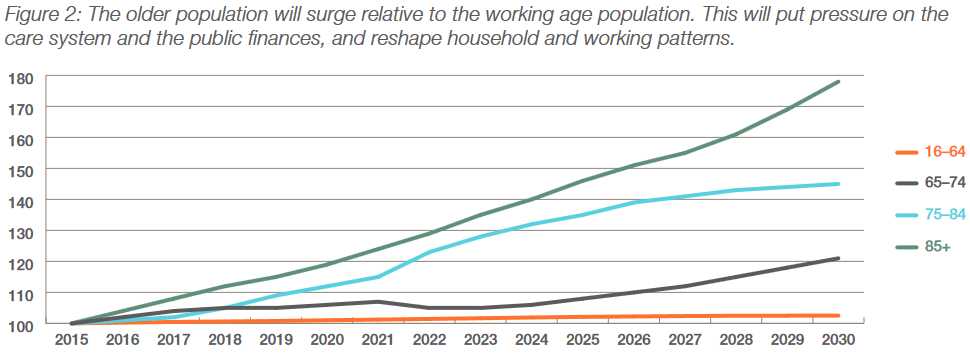
30th December 2016 Wave of economic, social and technological change will reshape Britain in the 2020s The Institute for Public Policy Research (IPPR) has published a landmark report analysing the factors shaping Britain up to 2030.
A leading think tank, the IPPR, published a report yesterday analysing the factors shaping Britain up to 2030. The forthcoming Brexit negotiations will fire the starting gun on the next decade – so understanding these future changes will be key for negotiations. The IPRR sets out the choices that must be made now to ensure a fairer and more equal society in the long term. The report highlights a number of key facts that will alter the way British people live during the 2020s: • As the population grows, the UK is set to age sharply and become increasingly diverse. The 65+ age group will grow by 33% by 2030. The over 85s population will nearly double. The non-white percentage of the population is expected to rise from 14% in 2011, to 21% by 2030 and one-third by 2050. • The global economy and the institutions that govern it will come under intense pressure as the Global South rises in economic and political importance. Half of all large companies will be based in emerging markets; • Due to demographic trends, a structural deficit is likely to re-emerge by the mid-2020s. The adult social care funding gap is expected to hit £13 billion – 62% of the expected budget – in 2030/31; • Up to two-thirds of current jobs – 15 million – are at risk of automation. Two million jobs in retail will disappear and 600,000 in manufacturing. These rapid advances in technology have the potential to create a new era of widespread abundance, or a second machine age that radically concentrates economic power; • Britain is home to the richest region in Northern Europe. But it also contains nine of the ten poorest regions. This stark wealth divide is likely to become even more noticeable, as the income of high-income households is forecast to rise 11 times faster than low income households. Living standards will rise slowly for middle- and low-income households, with real disposable income forecast to grow by just 9% for the former and 2% for the latter by 2030. • Climate change, biodiversity degradation, and resource depletion mean that society and the economy will increasingly run up against the limits of the physical capacity of the Earth's natural systems.
Mathew Lawrence, IPPR research fellow and the report's author, claims that Britain's current economic model will need major reforms to challenge the existing status quo. Continuing with the same old policies of the past will deliver weak and unstable growth, widening inequality, and stagnant living standards for many. The nation's political and economic system will struggle to build a more democratic, healthy society in the decades ahead, even as Brexit accelerates the country towards a radically different institutional landscape. "By 2030, the effects of Brexit combined with a wave of economic, social and technological change will reshape the UK in often quite radical ways," says Lawrence. "In the face of this, a politics of nostalgia, institutional conservatism and a rear guard defence of the institutions of 20th century social democracy will be inadequate. For progressives, such a strategy will not be robust enough to mitigate against growing insecurity, ambitious enough to reform Britain's economic model, nor sufficiently innovative to deliver deeper social and political transformation. They would be left defending sandcastles against the tide of history. "Britain's progressives should be ambitious – seeking to shape the direction of technological and social change. We must build a 'high energy' democracy that accelerates meaningful democratic experimentation at a national, city and local level, and also in the marketplace by increasing everyone's say over corporate governance, ownership and power." The report is keen to highlight the importance of emerging technologies, which are often overlooked by policymakers. Artificial intelligence, for example, will have a major impact by 2030, Lawrence claims. Mental and physical augmentation technologies could see the beginnings of a species divergence, with humans able to bioengineer different physical and mental capabilities. The 'Internet of Things' could potentially add up to £246 billion ($303 billion) in real terms to the UK economy by 2030. Many other future developments and trends are described in the report. In the longer term, Lawrence concludes, "as machine learning and computing power divorces intelligence from consciousness, as improving health technologies allow for biological enhancements and species divergence, and as the final frontier is conquered by space travel, technological and social transformation will increasingly change what it means to be human." The report, Future proof: Britain in the 2020s, is available to download at the following link: ---
Comments »
|








